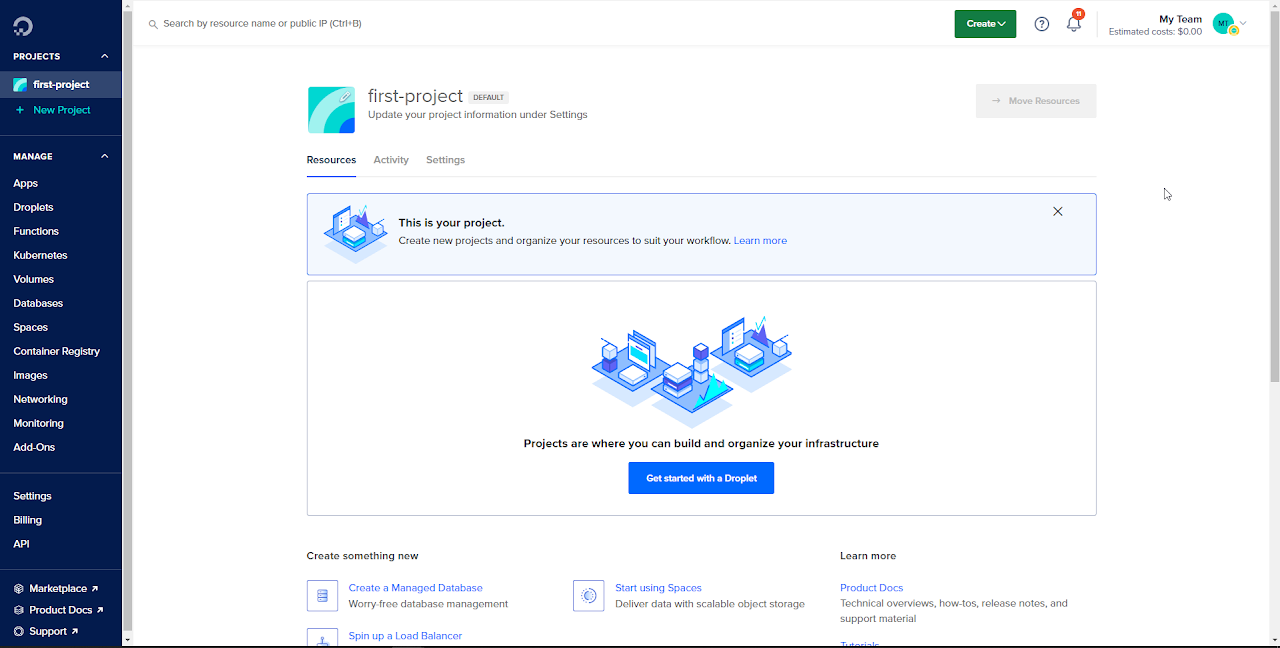Digital Ocean
Digital Ocean
📘 What is Digital Ocean
A simple and scalable cloud platform for all developer needs:
Hostwebsites with the simplest cloud hosting platformBuildweb apps or API backends on robust infrastructureDeploycontainer based apps with managed Kubernetes- Speed up development with intuitive API, developer tools and
CI/CD add-ons - learn the basics of cloud computing
1 Overview
DigitalOcean is a popular choice among DevOps professionals due to several factors.
Firstly, it offers an intuitive user interface and straightforward setup process, making it accessible even to those with limited infrastructure knowledge.
Secondly, its scalability allows developers to easily adjust resources to meet their application’s demands without cumbersome hardware management. Additionally, DigitalOcean’s competitive pricing and transparent billing make it appealing to startups and small businesses.
The platform also provides a plethora of developer-centric features such as pre-configured droplets, managed databases, Kubernetes clusters, and object storage. Its active community and extensive documentation further support developers in troubleshooting and learning.
Moreover, DigitalOcean’s infrastructure is renowned for its performance and reliability, with strategically located data centers ensuring low latency and high availability.
Lastly, its integration with popular DevOps tools and provision of APIs facilitate automation and seamless integration into existing workflows. Overall, DigitalOcean’s combination of simplicity, scalability, affordability, and developer-centric features contributes to its popularity among DevOps professionals.
2 Digital Ocean k8s
DigitalOcean Kubernetes (DOKS) is a managed Kubernetes service that lets you deploy Kubernetes clusters without the complexities of handling the control plane and containerized infrastructure.
Clusters are compatible with standard Kubernetes toolchains and integrate natively with DigitalOcean Load Balancers and block storage volumes.
